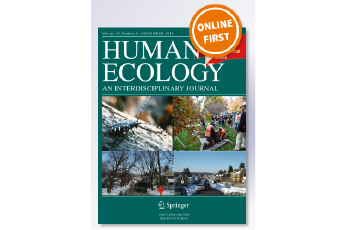
Adaptation Strategies of Andean Pastoralist Households to Both Climate and Non-Climate Changes
Abstract
Pastoralist households in the Andes have always had to cope with climate uncertainty. Recently, however, due to a combination of a weak asset base, large inequalities in land and livestock access, and the prevalence of multiple nonclimate-
related stressors, they are being pushed beyond their range of adaptability. However, the complex, forward-looking and site-specific features of these adaptation strategies remain insufficiently addressed. This article identifies the diverse adaptation trajectories pursued by pastoralist households in the Central Andes. Accumulation of livestock and adherence to the traditional economy are the strategies most often followed by wealthier households, while less well-off households seek further integration into the market economy and asset diversification. Measures aimed at promoting textile manufacturing, favouring the preservation of certain grassland areas, and reducing land fragmentation, seem particularly appropriate for
enhancing the livelihoods of Andean pastoralist households.
Keywords: Pastoralism, Peruvian Andes, Global environmental change, Climate change
Comment (1)
Comments are closed.

Henry
octubre 19, 2021Hello
It’s an interesting article